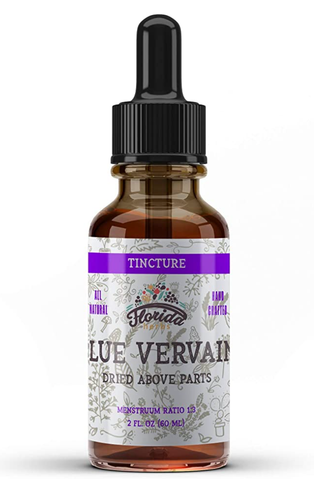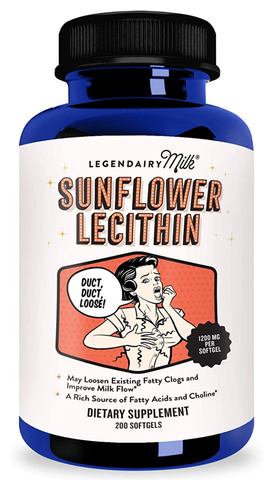
An increasing number of moms are choosing to breastfeed their kids early in life. Even moms who primarily rely on infant formula to raise their baby are breastfeeding occasionally for the bonding process, nutritional value, and immunity.
But what about when your milk supply is low?
Here’s an interesting fact: what you do, how you feed your baby, and what you eat can change the way your body produces milk. From too much stress to clogged ducts, maintaining a steady milk supply is not rocket science — but it does require great attention to detail.
Fortunately, there are quite a few ways to boost milk supply. In this article, you’ll learn about 10 of the best lactation boosters you can use to start regulating your milk supply.
How Do Lactation Boosters Work?
There are a ton of different herbs you can use to produce more milk.
These herbs are known as galactagogues, which is just a sci-fi-sounding word for natural lactation boosters. Galactagogues are vital in naturally boosting your milk supply.
Herbs and plants like nettle and fenugreek, as well as foods like oats and Brewer’s yeast, work together to act on the hormones that keep milk production levels up.
These are hormones like:
- Progesterone
- Prolactin
- Estrogen
- Insulin
The galactagogues, or lactation boosters, help regulate the production of these hormones. In turn, hormones are better able to ‘tell’ your body that it’s time to produce milk.
Of course, hormones are just the internal triggers. External factors like how much milk you express, feeding cues and frequency, your diet, lifestyle support, and even mental wellbeing also play a role in boosting your milk supply.
How to Choose a Lactation Booster
The lactation booster you use is a personal preference. However, there are several differences between natural lactation boosters that might help you target your specific issues.
For example, some mothers have a low milk supply because their hormones aren’t well-regulated; in this case, something like blessed thistle would work to balance them.
Another reason mothers may experience low milk supply is due to plugged ducts. In this case, a better lactation booster would be lecithin.
(Read on to learn which type of lecithin is best for you, though, because not every source is safe for a breastfeeding mom!)
Here are a few tips that might help you further narrow down what your body’s milk production needs:
- If your baby is having trouble staying latched on, your first course of action should be to consult a lactation specialist. Feeding cues are part of the external factors that contribute to milk production, so a secure, well-latched baby is a hungry baby that triggers more milk supply through feeding.
- Work with a functional medical specialist like a naturopath, who will be able to assess your overall health and hormone level, and advise you on what to target. For example, a woman whose breast size didn’t increase during pregnancy may need a galactagogue or lactation booster that also supports the development of mammary tissue.
- Make sure you’re not allergic to the lactation herb you’re taking. For example, the lactation booster fenugreek is a great success for many women looking to induce or increase milk supply. However, some mothers are super sensitive to the strong herb, especially if they have an underlying thyroid problem or a sensitive stomach. In this case, you’d want to opt for other popular lactation boosters like Shatavari, silymarin, or malunggay and skip the fenugreek formulas.
- Increase the dosage over time. Starting with low doses for a week or so before upping your intake can help you alleviate any unintended side effects. In general, however, herbal lactation boosters are preferred for their non-toxicity — so rest assured, your baby will be safe.
Armed with these best practices, you can’t go wrong. It’s now time to find the right lactation booster for you.
10 Best Lactation Boosters in 2021
1) Pump It Up

Increasing your milk supply to satisfy your baby at every feeding? Check.
Helping your body trigger faster milk release? Absolutely.
Balancing hormones postpartum for a more relaxed, even, and stable new mom experience? Check, check, and check.
Oh, and one more thing: The curated collection of herbs that make up the powerful and potent Pump It Up lactation booster also relieves your baby of excessive gas.
Phew! That’s one hardworking lactation booster.
The secret of Pump It Up’s effectiveness is the carefully chosen, high-quality collection of herbs that make up the formula. They’re 100% plant-based, non-GMO, and are designed to be highly bioavailable so that your body - and your baby - receive every drop of what it needs.
Take a peek at the ingredients of this lactation booster:
- Motherwort
- Fennel
- Chamomile
- Raspberry
For moms who want fenugreek-formulas, Pump It Up is about to be your new best friend.
2) Blessed Thistle

No, blessed thistle is not the same as milk thistle. The two are completely different plants. They are, however, from similar plant families — so that’s why their names are similar.
Oh, and there’s one more thing these herbs have in common: You can use both milk thistle and blessed thistle as effective lactation boosters.
So which one is “better?” Well, technically, there is no “better” — as galactagogues, both types of thistles help improve milk supply. There’s only one caveat you may want to watch out for.
You may already know that milk thistle is a popular liver detoxifier. When you use it as a lactation booster, however, you’re benefiting from important compounds such as the bioflavonoid phytoestrogen silymarin.
Silymarin stimulates lactation directly and also plays a role on estrogen receptors that might inhibit milk production in the body. It’s perfect for mothers who need to feed premature infants.
However, milk thistle is quite strong and could also cause an upset stomach and loose bowel movements for both you and your baby.
Blessed thistle is a less potent option — in terms of side-effects — that works extremely well (and consistently) when it comes to boosting your milk supply. As a lactation booster, blessed thistle offers all the benefits of milk thistle without the side effects.
Win-win!
3) Organic Mother’s Milk Tea

Looking for lactation boosters in the form of a gentle, soothing tea?
Organic Mother’s Milk by Traditional Medicinals has got you covered. The herbal tea packs a bunch of galactagogues, including fennel, anise, fenugreek, coriander, and blessed thistle.
There are some caveats that you need to be aware of when taking this lactation booster tea:
- Don’t use Mother’s Milk while you’re still pregnant as the fenugreek could cause undue uterine contractions.
- The tea helps you boost, not maintain, milk supply, so once you see production rise (and you keep it constant by expressing or pumping until you’re “empty”), you can cut out the tea.
- While fennel, anise, and fenugreek are highly effective as lactation boosters, they do come with a slightly bitter aftertaste. Consider mixing the tea with some mild apple juice to give it a sweeter and more balanced taste (think about the flavors in apple cinnamon cookies).
4) Moringa

Ever heard of “malunggay?” It’s what people living in the Philippines call moringa.
Like CBD oil, moringa is one of those do-it-all, hearty herbs whose natural vitamins, minerals, and antioxidants can help with everything, from nausea and morning sickness to staving off oxidative stress (which often plays a role in the development of cancer).
However, unlike CBD oil, women in Asian countries have been using moringa oleifera (the leaves of the drumstick tree) as a completely natural lactation booster for generations.
Studies show that moringa’s potency as a lactation booster is so well-documented that mothers of preterm (premature) babies can rely on this herb as a safe way to feed their baby in those delicate first few weeks.
The moringa in this Motherlove More Milk Moringa blend is also useful if you don’t want any fenugreek.
5) Vitanica’s Lactation Blend

Sometimes, it’s not about increasing milk supply as much as it is about keeping your milk supply consistent.
For example, let’s say it’s time to wean your little one off breastfeeding and introduce them to solid foods. However, you want to keep your supply constant and continue to breastfeed in case your little one doesn’t get all the nutrition they need from solid foods alone.
During the transition period, you’re going to pump and store — however, feeding cues, like your little one crying or grasping for the breast, won’t be as consistent because they’re eating elsewhere.
That’s where Vitanica’s Lactation Blend comes in.
Designed to be a nursing support, the formula includes all your usual galactagogues — fennel, milk thistle, oatstraw, and fenugreek — to keep your supply consistent. There’s also one more potent ingredient that you want to consider for your baby’s nutritional needs:
Nettle.
Stinging nettle not only stimulates milk production and keeps supply consistent, it’s also a lactation booster that’s nutrient-dense. Expect high amounts of iron, calcium, folic acid, essential amino acids, B vitamins, and vitamin K.
What more could a nursing mother need?
6) Pink Stork Lactation Tea

With its smooth and delicious vanilla flavoring and all the usual galactagogue suspects — including fenugreek, milk thistle, fennel and anise — Pink Stork’s lactation tea is perfect for those who want to mask the slightly bitter aftertaste of these lactation boosters.
The herbs, which include the sweet marshmallow root, are 100% organic and you can help yourself with one to three cups of this soothing concoction a day.
7) Blue Vervain

Pump It Up is a 100% plant-based supplement that supports you by:
- Promoting faster let downs (milk release)
- Supporting abundant milk supply so baby feels full and content
- Aiding relief from the tummy irritants that frequently trigger gas
- Promoting relief from postpartum symptoms for less stress, more happiness, and a wonderful new mom experience
Try it risk free with our 60-Day Money Back Guarantee.
Blue vervain has several benefits that work on the entire body, alleviating multiple issues, in addition to acting as a strong lactation booster.
Growing across the prairies of North America, this flowering plant is used in teas, tinctures, salves, syrups, and lotions. Like milk thistle, blue vervain aids in detoxifying the body and you’ll often find this natural herb as a key ingredient in lactation boosters designed to help soothe and calm a new mom.
8) Goat’s Rue

Relax — this herb has nothing to do with goats. If you were concerned about having to take a swig of something that smells, well, of goats, don’t be. Goat’s rue is the name of a rather beautiful flowering plant that’s safe and effective enough to act as a lactation booster.
While it’s wonderfully effective, here’s a note of caution: If you’re taking a lactation booster with fennel and anise, try and keep away from Goat’s rue. These herbs don’t play nicely together and could cause lethargy and weakness in infants.
On the other hand, Goat’s rue does well with moringa, which is entirely non-toxic when breastfeeding.
9) Fenugreek

It’s quite common to pull up a mommy blog article about lactation boosters and fenugreek sits right at the top of the list.
Plenty of women around the world swear by the power of this herb and natural galactagogue as a lifesaver when it comes to boosting milk supply.
So, instead of adding to the chorus, it might also be useful to understand why fenugreek, while highly effective, isn’t for everyone.
- First off, many new mothers find that they are sensitive to fenugreek, even if it initially “works.” In fact, its gastrointestinal side-effects include vomiting, diarrhea, flatulence, and nausea.
- Secondly, fenugreek doesn’t play well with quite a few other conditions and medications. For example, if you’re on warfarin, which is a blood-thinner, interaction with fenugreek can cause internal bleeding.
- Fenugreek could also cause cross-reactions with some foods such as chickpeas, peanuts, and other legumes.
- Finally, you’ve got to get your dosages right. One to six grams of fenugreek daily is supposed to be ideal for boosting milk supply. However, a dose of 25 grams or more could end up lowering blood sugar and exacerbating the symptoms of asthma and diabetes mellitus.
10) Sunflower Lecithin

Lecithin is a naturally occurring compound that appears in sources like sunflowers and soybeans. It’s used in certain foods like nut butters and other spreads to help keep the different components together.
That’s because lecithin, a natural emulsifier, is a mixture of choline, fatty acids, and phospholipids, among other things. These are all a part of human milk — but that’s not the only reason why it’s such an effective lactation booster.
Lecithin’s role as an emulsifier may be why it works so well for plugged ducts. If your milk supply is low because of this particular reason, sunflower lecithin is the best lactation booster for you.
Now, why sunflowers and not soy? Soybeans are more likely to be farmed as GMO seeds than sunflowers. Besides this, high levels of phytoestrogens in soy have been studied as a trigger or a contributing cause to estrogen-related cancers, such as breast cancer.
That’s why sunflower lecithin is your best bet when it comes to using a lactation booster that also moves milk supply through plugged ducts.
Conclusion
As with any supplementation, consistency and dosage is key with these lactation boosters. Of course, it’s important to monitor your flow and taper off when you feel your milk production is back on track.
If you do end up choosing tinctures and powders instead of capsules or teas, you can also add any of these lactation boosters to lactation smoothies to really get that flow on the go.


